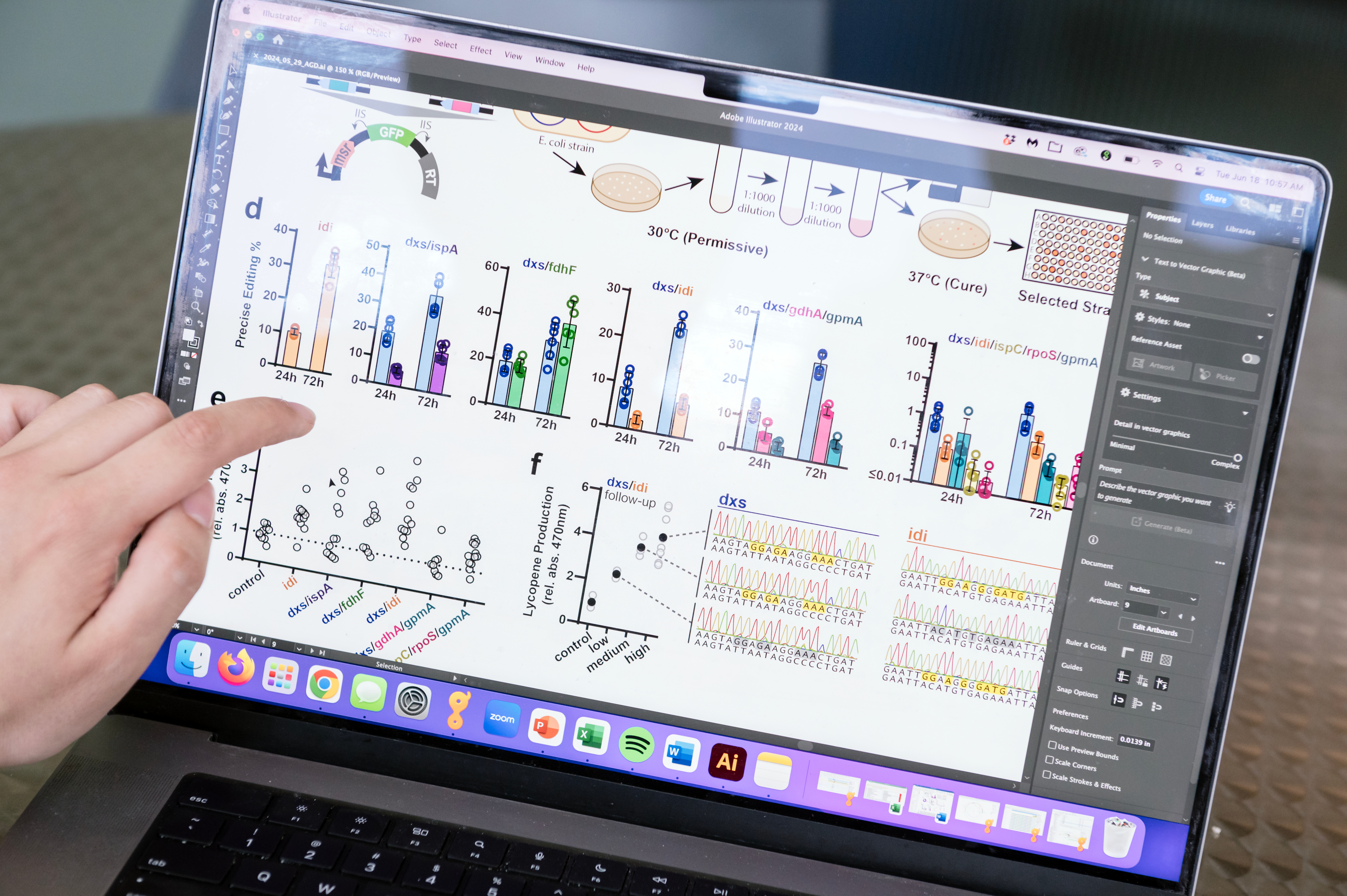The Silas Lab is focused on addressing the global health crisis of antimicrobial resistance and expanding our understanding of the enormous genetic diversity of bacteriophages—viruses that infect and kill bacteria. By pinpointing common antivirus mechanisms in wild strains of pathogenic bacteria, the lab is painting a comprehensive picture of the entire defense architecture that phages encounter when infecting cells. Silas combines this information with AI-powered inferences to engineer phage cocktails that can be used as reliable therapeutic agents in our fight against drug-resistant bacteria.
Disease Areas
Areas of Expertise

Lab Focus
Research Impact
The World Health Organization classifies antimicrobial resistance as a global health crisis, threatening the prevention and treatment of an increasing number of infections. One of the most promising approaches for defeating drug-resistant infections is based on bacteriophages, more commonly known as “phages,” which are viruses that naturally infect and often kill bacteria in our bodies and throughout nature.
Sukrit Silas is working to harness the vast potential of phages to counter grave bacterial threats to human life. His lab carries out large-scale screens of tens of thousands of phage genes in hundreds of wild bacterial strains to identify those with the potential to become or enhance phage-based therapies.
Using high-throughput screening methods, Silas looks beyond the limited number of phage genes that are typically studied. Already, he has found critical barriers that these viruses must overcome to enter bacterial cells—knowledge that will help in designing effective new treatments.
Professional Titles
Assistant Investigator, Gladstone Institutes
Assistant Professor, Department of Microbiology and Immunology, UC San Francisco
Bio
Sukrit Silas, PhD, joined Gladstone Institutes in 2024 as an assistant investigator in the Gladstone Infectious Disease Institute. With a central focus on addressing the global health crisis of antimicrobial resistance, he seeks to understand the enormous diversity of bacteriophages, which are viruses that infect and kill bacteria.
By pinpointing common antivirus mechanisms in wild strains of pathogenic bacteria, Silas is painting a comprehensive picture of the entire defense architecture that phages encounter when infecting cells. His lab combines this information with AI-powered inferences to engineer phage cocktails that can be used as reliable therapeutic agents in our fight against drug-resistant bacteria.
Silas earned his PhD in chemical and systems biology from Stanford University, after which he co-founded a diagnostics startup, BillionToOne, to commercialize a PCR-standardization approach he invented to noninvasively test for genetic diseases like thalassemia and sickle-cell anemia. He then returned to academia, completing his postdoctoral research at UC San Francisco as a Damon Runyon Postdoctoral Fellow. There, he built a platform to design new technologies and therapies by discerning the functions of thousands of virus genes in parallel and leveraging them to probe host immunity.
Notably, Silas also discovered CRISPR adaptation to RNA, which allows bacteria to record genetic memories of RNA molecules. His work established the new field of prokaryotic adaptive immunity against RNA viruses and has subsequently inspired efforts to use the RNA recording capacity of CRISPR-associated reverse-transcriptases to trace cell lineages across development and tumorigenesis.
"Genetic diversity in the phage world is enormous. But today we have the tools to make scientific breakthroughs that could take phages from a basic biology problem to a viable therapeutic."
Sukrit Silas, PhD
Honors and Awards
2022 Damon Runyon Postdoctoral Fellowship Award
2020 UCSF Dean’s Commendation for Exceptional Volunteerism and Community Service
2019 Honoree, Forbes Healthcare 30 Under 30 List
2017 Harold M. Weintraub Graduate Student Award
2011 Gates-Cambridge Scholarship
Publications
Wolf Y*, Silas S* et al. (2020) A metavirome from a single aquatic habitat doubles the known diversity of RNA viruses and solidifies the five-branch structure of the global RNA virome. Nat Microbiol, 72:700-714.e8. *Contributed equally
Tsao D, Silas S et al. (2019) A novel high- throughput molecular counting method with single base-pair resolution enables accurate single-gene NIPT. Sci Rep, 9:14382.
Mohr G*, Silas S*, Stamos J* et al. (2018) A reverse transcriptase-Cas1 fusion protein contains a Cas6 domain required for both CRISPR RNA biogenesis and RNA spacer acquisition. Mol Cell, 72:700-714.e8. *Contributed equally
Silas S et al. (2017) Type III CRISPR-Cas systems can provide redundancy to counteract viral escape from type I systems. eLife, 6:e27601.
Silas S*, Mohr G* et al. (2016) Direct CRISPR spacer acquisition from RNA by a natural reverse-transcriptase-Cas1 fusion protein. Science, 35:aad4234. *Contributed equally
Contact
Sukrit Silas
Email
Alia Aguilar
Administrative Associate
415.734.2725
Email

